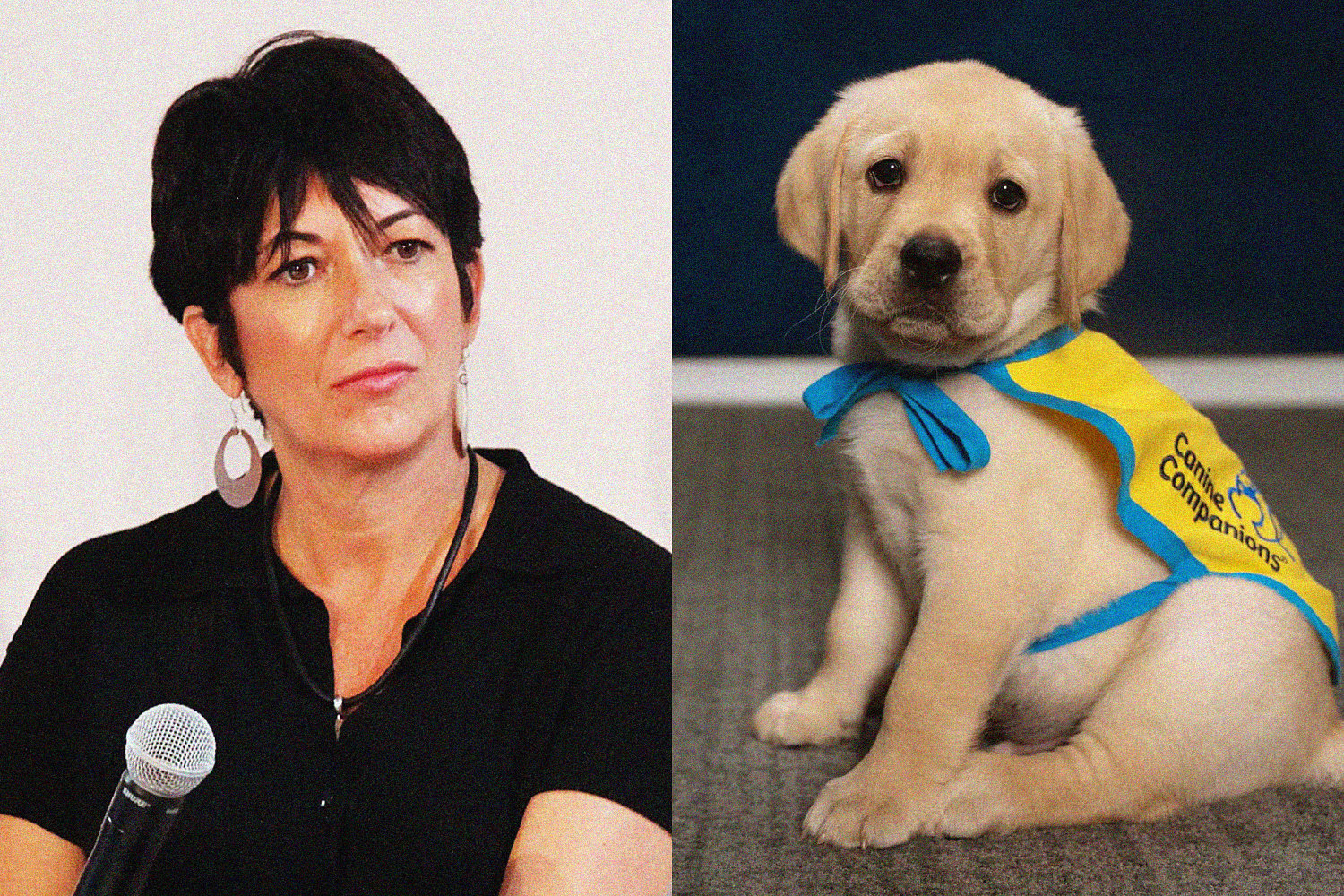
There will be no puppy love for Ghislaine Maxwell at her new home.
The longtime Jeffrey Epstein confidant and convicted sex trafficker will get to enjoy a number of perks at the cushy prison camp in Texas where she was transferred last week, but training service dogs won’t be one of them.
The chief executive officer of Canine Companions, the organization that runs the programs at Maxwell’s new institution and others, told NBC News that the puppy training is off limits to inmates like Maxwell.
“We do not allow anyone whose crime involves abuse towards minors or animals — including any crime of a sexual nature,” said Paige Mazzoni, who has been leading Canine Companions since 2018. “That’s a hard policy we have, so she will not be able to.”
Those restrictions are in place, Mazzoni added, to protect the puppies.
“Those are crimes against the vulnerable, and you’re putting them with a puppy who is vulnerable,” she said.
Maxwell was moved to Federal Prison Camp Bryan after meeting with Deputy Attorney General Todd Blanche for nine hours of interviews over two days. The unusual question-and-answer session was set up as the Trump administration has sought to quell an uproar over its handling of the Epstein case.
Trump administration officials had swept into office hyping the release of the so-called Epstein files. But the disclosure of roughly 200 documents in February yielded no significant revelations. And last month, the Justice Department and FBI announced that an “exhaustive review” had not uncovered evidence that justified criminally investigating other individuals. The announcement prompted some of Trump’s most ardent supporters to lash out at the administration.
NBC News reported Tuesday that the Trump administration is considering publicly releasing the transcript of Blanche’s two-day meeting with Maxwell, who is serving a 20-year prison sentence for recruiting minors to be sexually abused by Epstein.
Maxwell’s transfer to the prison camp has also generated controversy. It is typically not a destination for people convicted of sex crimes.
The service dog training program is among the special opportunities available to inmates at Federal Prison Camp Bryan. Canine Companions runs such programs at 25 state and federal detention facilities across the country.
The first prison-based program was launched at a facility in Oregon in 1995, but they are especially vital now amid a national shortage of service dogs, according to Mazzoni.
“We need more dogs, and we need more volunteers,” Mazzoni said.
About two years ago, Canine Companions began to focus on growing its prison-based programs. Mazzoni said the reasons are twofold: the facilities are home to a large number of potential volunteers and, interestingly, dogs trained by inmates have a higher rate of successfully completing the program.
“It’s because there’s so much discipline and time in prison to spend really focusing on training the dogs,” Mazzoni said.
An added benefit: Inmates who have gone through the program also have lower recidivism rates, Mazzoni said.
“We get letters from the incarcerated people saying things like, ‘It’s the first time I felt unconditional love,’ and, ‘It’s my chance to give back to society,’” she said. “One of our board members loves to say, ‘If that dog doesn’t make it as a service dog, it’s still changed a life.’”








